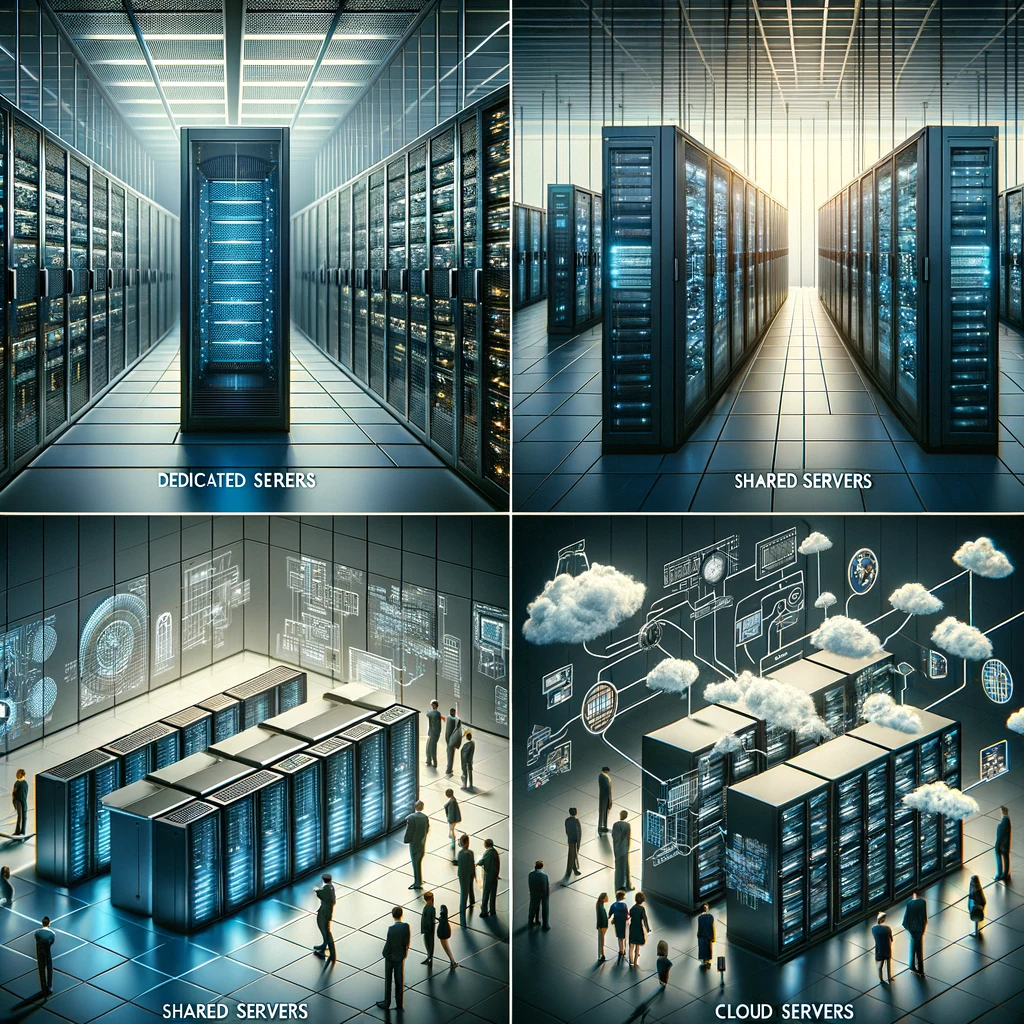Introduction: If you’re navigating the complex world of digital infrastructure for your business, understanding server solutions is crucial. This guide will walk you through everything from basic definitions to choosing the right server setup for your needs.
What Are Server Solutions? At its core, a server solution involves the hardware and software that enable a computer to manage network resources. Servers are typically used to host websites, run business applications, or store data. There are various types of servers including dedicated, shared, VPS, and cloud servers.
Types of Server Solutions:
- Dedicated Servers: Offered exclusively to one client, providing maximum control and performance.
- Shared Servers: Cost-effective and suitable for small to medium-sized websites.
- Virtual Private Servers (VPS): A middle ground between shared and dedicated hosting.
- Cloud Servers: Highly scalable, offering resources on-demand from a cloud computing provider.

Choosing the Right Server Solution: Selecting a server solution should start with a clear assessment of your business needs, followed by an analysis of budget constraints. Factors like traffic expectations, data security needs, and application requirements should guide your decision.
Setting Up a Server Solution: Setting up a server typically involves selecting the appropriate hardware, installing the necessary software, and configuring the server to meet your specific needs. A detailed step-by-step guide can help streamline this process.
Server Security: Security is paramount when it comes to servers. Implementing robust security measures and understanding common threats are essential to protect your data and resources.
Server Maintenance: Regular maintenance ensures that your server operates efficiently and remains secure. Routine updates, backups, and hardware checks should be part of your server management strategy.
Scaling Server Resources: Knowing when and how to scale your server resources can help maintain performance as your business grows. Whether through upgrading hardware or enhancing software capabilities, effective scaling is key.
Server Solutions for Small Businesses: For small businesses, affordability and simplicity are key. Options like shared servers or small-scale VPS can be ideal.
Server Solutions for Large Enterprises: Large enterprises may require complex server solutions with high capacities and specific configurations. Customized solutions and data center resources are typically necessary.
The Role of Data Centers: Data centers provide the physical or virtual infrastructure necessary for housing server solutions. They play a crucial role in ensuring the reliability and performance of servers.
Future Trends in Server Technology: As technology evolves, so do server solutions. Emerging trends like AI integration and energy-efficient servers are shaping the future of server technology.
Conclusion: Understanding server solutions is fundamental for any business operating online. With the right setup and management, servers can provide powerful support for your business operations.
FAQs
- What makes a dedicated server different from a VPS?
- A dedicated server is a physical server that is exclusively used by one client, providing maximum control and performance. It offers robust security, high performance, and the ability to fully customize hardware and software environments. In contrast, a Virtual Private Server (VPS) is a virtualized server that mimics a dedicated server within a shared hosting environment. While it provides greater control and isolation than shared hosting, it still shares physical resources like CPU and RAM with other virtual servers on the same host machine.
- How can I determine the right time to scale my server resources?
- The right time to scale server resources generally aligns with noticeable changes in website traffic, application demands, or data processing loads that impact performance. Key indicators include slowed response times, frequent server overloads, and increased user complaints. Additionally, proactive scaling can be considered ahead of expected growth periods, such as marketing campaigns or product launches that are likely to increase demand.
- What are some common server security threats?
- Common server security threats include Distributed Denial of Service (DDoS) attacks, where attackers flood the server with excessive traffic to overload systems; malware and ransomware infections that can corrupt data and cripple server operations; and data breaches where sensitive information is illegally accessed or stolen. Regular updates, robust firewalls, and comprehensive backup strategies are critical to mitigate these risks.
- Can small businesses benefit from cloud servers?
- Absolutely, cloud servers offer several benefits for small businesses, including scalability, flexibility, and cost-efficiency. Cloud services allow small businesses to pay only for the resources they use, which can be adjusted as the business grows or as needs change. Additionally, cloud servers can reduce the need for physical hardware maintenance and upfront capital expenses, making it an attractive option for small enterprises looking to leverage advanced technology without significant investment.
- What should I look for in a data center?
- When evaluating data centers, consider factors like reliability, indicated by uptime guarantees (look for 99.999% or higher); security measures, both physical (e.g., biometric access, surveillance) and cyber (e.g., firewalls, intrusion detection systems); connectivity options, ensuring there are multiple internet and power supply backups; customer support responsiveness; and environmental controls (e.g., cooling, fire suppression). Also, assess the geographic location of the data center to ensure it is not prone to natural disasters and provides legal compliance with data protection regulations relevant to your industry.